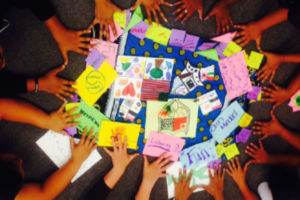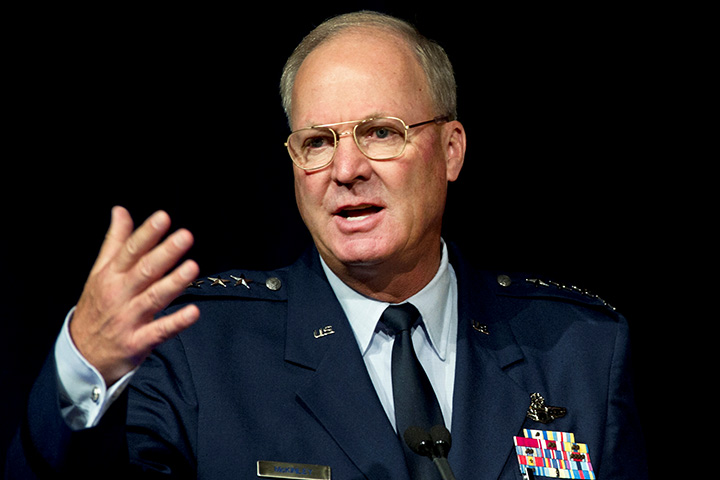Craig McKinley is a strong proponent of developing social and emotional skills in students, and the retired four-star U.S. Air Force general recently sat down with The Aspen Institute to explain why.


Craig McKinley is a strong proponent of developing social and emotional skills in students, and the retired four-star U.S. Air Force general recently sat down with The Aspen Institute to explain why.
“I think SEL prepares young people to be part of a process where they believe in something bigger than themselves,” said McKinley, who also served as president and CEO of the National Defense Industrial Association.
McKinley discussed his views on social and emotional learning last fall during a meeting of The Aspen Institute’s National Commission on Social, Emotional & Academic Development. McKinley serves as a commissioner with the group, which is “uniting leaders to re-envision what constitutes success in our schools.”
The Commission works with teachers and students across the country to “explore how schools can fully integrate social, emotional and academic development to support the whole student,” according to The Aspen Institute website.
With social and emotional learning, students “are taught it isn’t all about them,” McKinley said, “and that they can achieve excellence by practicing integrity, and doing all the things that some kids get naturally, and some kids get late in life.” “SEL is that tool, that conveyance, that takes a young person from not believing in himself or herself to a place where he or she can be a very productive part of society and contribute as much as they can,” he said.
The Aspen Institute’s Social, Emotional, and Academic Development (SEAD) program researches and champions the role of social and emotional learning (SEL) in education because “overwhelming evidence demands that we complement the focus on academics with the development of the social and emotional skills and competencies that are equally essential for students to thrive in school, career, and life.”
When students thrive, they’re accomplishing much more than simply succeeding. As General McKinley suggests, it points to a connection to something greater than the self, and it’s an acute need in education today.
University of California, Los Angeles sociologist and researcher Jeffrey Guhin studied the formation of character in urban public schools for the Institute for Advanced Studies in Culture’s School Cultures and Student Formation Project. In contrast to General McKinley’s vision of a connection to a greater good, Guhin reported in The Content of Their Character, “[I]n the absence of a stronger ethical sensibility that could carry throughout the school community, students were left to find larger ethical visions that might work for them . . . To the extent students were committed to altruism, solidarity, or broader public virtues, it was always through this diffuse institution of individualism, of insisting that what you most owe the world is your own self-realization.”
General McKinley points out that SEL is not simply about self-realization, but rather a deep recognition among students of a purpose “bigger than themselves.”
Often, students learn to develop social and emotional skills through service to others. Edutopia featured one example of a meaningful service project that builds character with a 4-minute video about Eminence Independent Schools in Kentucky, where students collaborate twice a year on projects to help their community.